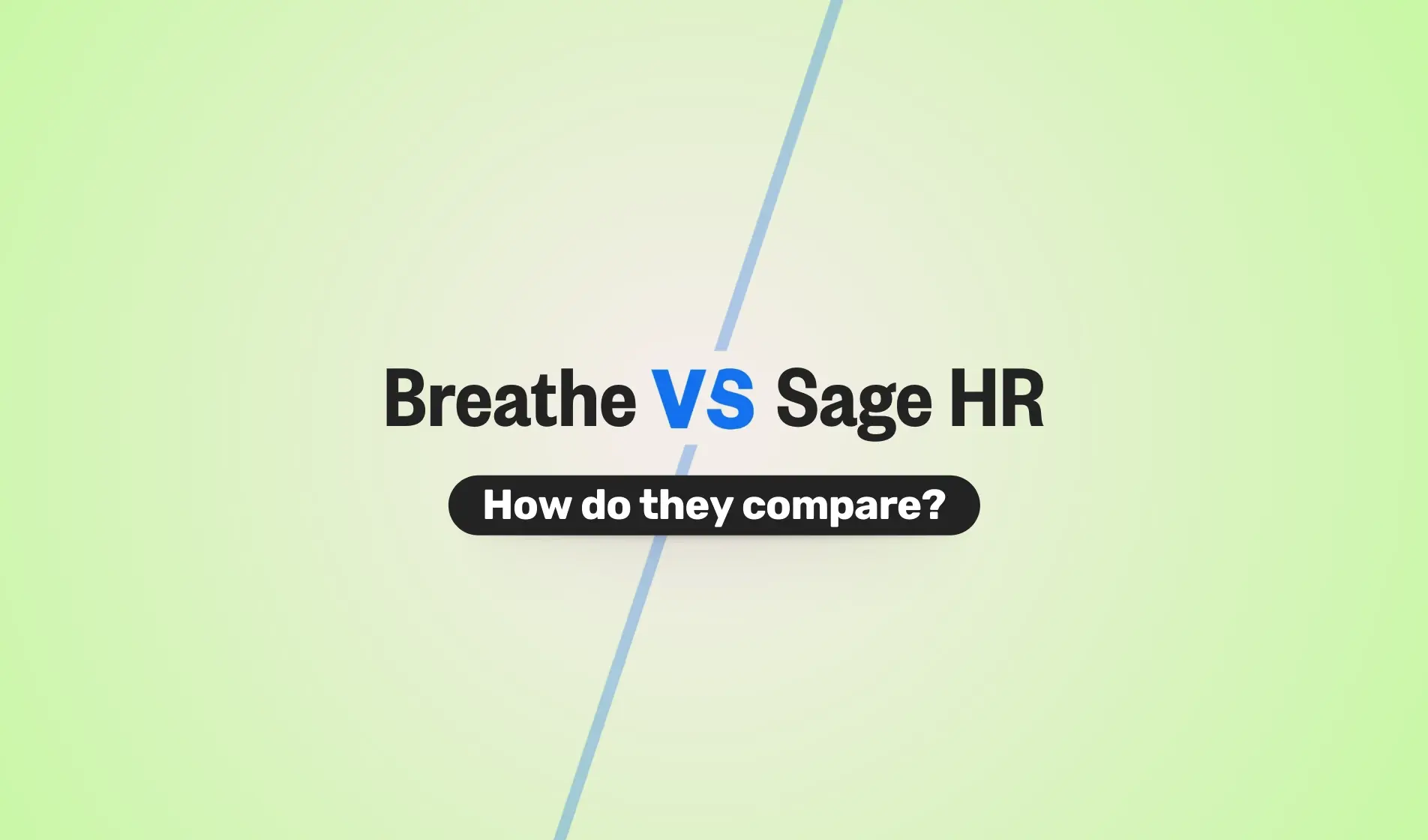Payment in lieu of notice (also known as PILON) can help to manage a person's exit if a situation arises when an employee needs to have their contract terminated sooner than expected.
This is especially helpful to those people who:
-
you no longer wish to have ongoing access to sensitive company information; and /or
-
display ongoing disruptive and unproductive behaviour.
What is payment in lieu of notice?
In the UK, payment in lieu of notice, (often called PILON), is where you end someone's employment immediately and pay them instead of asking them to work their notice period.
This means the employee still gets the money they would have earned during their notice period, event though they are leaving straight away. This helps protect their rights and offers a cleaner break for both sides.
You might choose PILON if it's best for someone to leave the business immediately - for example, if you want to limit access to sensitive company information.
It can also be used in redundancy situations, where it feels more supportive for the employee to leave straight away with pay, rather than work their notice.
However, if you are dismissing an employee for gross misconduct, then PILON is not normally paid.
Comparison of PILON and garden leave
While PILON and garden leave both involve employees not working during their notice period, they are used differently.
PILON ends the employment contract immediately. The employee is paid for their notice period and is free to move on.
Garden leave, on the other hand keeps the employee on you payroll and under contract, but they are not working. They're still bound by their terms of employment and can't start a new role until their notice ends.
In summary:
-
PILON = employment ends now + paid notice period
-
Garden leave = still employed + not working
How can employers manage payment in lieu of notice?
-
Check employment contracts
Look at what your current payment in lieu of notice terms detail and consider updating conditions.
It’s an awful lot easier to pay PILON without breaching a contract of employment if the terms are carved into the contract in advance.
-
Include a PILON provision that covers how, when & what is paid in lieu
Employers are well within their rights to include a condition to terminate employment immediately if PILON is paid at the basic salary that would have otherwise accrued.
-
Consider extra pay and benefits
This is particularly useful for those who don't yet have PILON terms and conditions written into their employment contract. Technically, if it's not there, any termination of employment with PILON is likely to be a breach of contract.
So reassure your people and clear up ambiguity. By specifying the employment extras and benefits that are inclusive of PILON, you can - in theory - manage your employee's exit pretty smoothly.
-
Walk a mile in their shoes
Try to see this as an opportunity to demonstrate your level of care as an employer right up until unforeseen dismissals.
This is key for showing the rest of your people how you handle difficult situations.
Extras to consider on top of salary and benefits for the notice period:
-
Payment for annual leave that would've accrued during the notice period
-
Further payment to compensate the employee as a way of full and final settlement.
-
Continued access to employee apps and wellbeing programmes, such as medical, EAP, and any other benefits that could help the transition.
Complications can arise if your employee:
-
has share options,
-
could lose additional pay or benefits during the notice period that you don’t want to cover under the PILON,
-
is having medical treatment under company health insurance; and / or
-
can evidence that the conditions for the correct dismissal process were neglected.
In those cases, think about contacting an employment lawyer to check for breaches in your contractual obligations.
How is payment in lieu of notice calculated?
Usually, employees are paid the amount they would’ve earned during their notice period.
If PILON is written into the employment contract, it should be paid according to those terms. Sometimes this only includes basic pay, while in other cases it might cover benefits too.
Where there’s no contractual PILON clause, you’ll usually need to pay all salary and benefits that would’ve accrued over the notice period. This payment should normally be made straight away, when employment ends.
Here’s a simple example:
Let’s say your employee earns £2,500 a month and has a one-month notice period.
If you decide they should leave immediately and PILON is included in their contract, you’d pay them £2,500 instead of asking them to work that month.
Not sure what to include? It’s always worth checking with an employment law expert. It helps protect both your business and your people.
Is tax applicable to payment in lieu of notice?
PILON payments may or may not be taxable depending on how they are handled and paid. There are three ways to make PILON (payment in lieu of notice) payments:
-
PILON payment made under terms of employment where employee is entitled to it
-
PILON payment made under terms of employment at the employer’s discretion
-
PILON payment made where there is no contractual right of payment or provision made
According to HMRC, tax will normally be paid on the first two situations because those payments come under normal terms of the employment contract.
Because the third situation normally results in a breach of contract it is therefore not payable under the terms of employment and not subject to normal tax – it is essentially an advance payment of damages to compensate an employee for loss and to avoid a costly legal claim for you.
This payment is tax free up to £30,000.
Find out how Breathe can help you to streamline your employee admin with a free 14-day trial.
Frequently asked questions
When can employers use PILON?
Employers can use payment in lieu of notice (PILON) when they want an employee to leave immediately, rather than work their notice period. This might be because the role is no longer needed, to protect sensitive information, or to avoid disruption in the team.
PILON is often used in redundancy situations or to support a smoother, more respectful exit. But it’s not usually paid if someone is dismissed for gross misconduct.
Is PILON pensionable?
It depends on how the payment is treated and what’s written in the contract.
If PILON is part of the employee’s contractual terms, it’s usually treated like normal pay which means it could be pensionable, and subject to tax and National Insurance.
But if there’s no PILON clause in the contract and it’s paid as compensation for ending employment early, it’s not usually classed as pensionable pay.
If you're unsure, it's always worth checking with your pension provider or a legal expert to make sure you're doing the right thing for your business and your people.

Author: Aimée Brougham-Chandler
An IDM-certified Digital Copywriter (2023) & English Language & Literature graduate (BA Hons), Aimée is Breathe's Content Assistant. With 3 years' content marketing experience, Aimée has a passion for writing - and providing SME HR teams with solutions to their problems. She enjoys delving into & demystifying all things HR: from employee performance to health and wellbeing, leave to company culture & much more.




